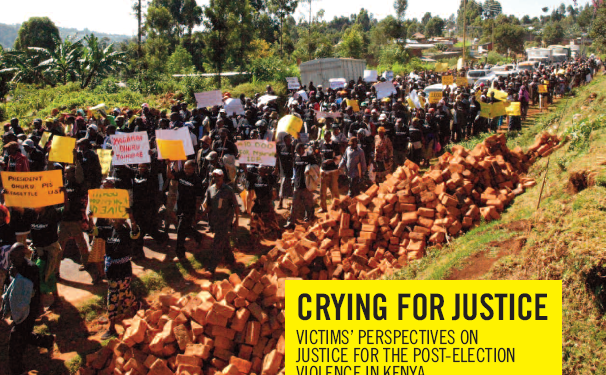Amnesty International (AI) urges the Assembly of State Parties to the Rome Statute to reject Kenya’s and South Africa’s proposed agenda items at the opening of the the 14th ASP forum. AI says it is seriously concerned that the agenda items proposed by Kenya and South Africa go beyond the mandate of the Assembly as defined in Article 112 of the Rome Statute and deal with purely judicial matters. “For the reasons set out below, our organization therefore calls on states parties to oppose the inclusion of these items. If necessary, at the opening of the session, states parties should insist on a vote to delete the items from the agenda in accordance with Rule 20 of the Rules of Procedure of the Assembly of States Parties. States should also object if these topics are formally incorporated or otherwise introduced in other parts of the agenda.” On the implementation of the amended Rule 68, AI states that: Amnesty International considers that Kenya’s request must be rejected because the subject matter of the concerns raised is currently under consideration by the Appeals Chamber. The text and drafting history of Article 112(2)(b), clearly illustrates that the Assembly’s management oversight of the ICC relates to the administration of the Court and excludes judicial matters. The discussion proposed by Kenya would cross this line and could amount to political interference in the current judicial proceedings. That is not to take a position on the legitimacy of Kenya’s concerns. Amnesty International has no information beyond the text of Resolution ICC-ASP/12/Res.7 amending Rule 68, and therefore has no opinion, on whether Kenya was provided with specific assurances during the 12th session regarding its retroactive application. However, our organization is concerned about some elements of amendments to Rule 68 and stresses that the rights of the accused must be fully respected when the Rule is applied. Nevertheless, concerns relating to non-retroactivity and the right to a fair trial in on-going cases must be addressed by the relevant Chambers. Both these questions are currently under judicial consideration by the Appeals Chamber in the Ruto/Sang trial. In addition, the African Union has submitted an amicus curiae to the Appeals Chamber, which speaks to these issues and reflects the concerns raised by Kenya.8 The Appeals Chamber must decide these matters without any interference by the Assembly.” On the proposed audit of the Office of the Prosecutor, AI says: Amnesty International considers that the proposed audit of the Office of the Prosecutor would be inconsistent with the independence of the Prosecutor and potentially undermine the security of its procedures relating to witnesses. It should therefore be rejected. In relation to the serious allegations of misconduct made against ICC staff, Kenya should urge those making them to submit complaints to the Independent Oversight Mechanism (IOM) established pursuant to Article 112(4) of the Rome Statute and Assembly Resolutions ICC-ASP/8/Res.1 and ICC-ASP/12/Res.6. The IOM is mandated by the Assembly to consider such complaints and, if it decides it is appropriate, to conduct an investigation. While the IOM is a subsidiary body of the Assembly, it is independent. It conducts investigations proprio motu – not on the direction of the Assembly.10 It is therefore essential that the Assembly does not take any measures that undermine its independence or seek to influence its decision making process. It would be inappropriate for the Assembly to discuss the allegations cited in the petition, especially before the IOM has reviewed them and completed its process.”







